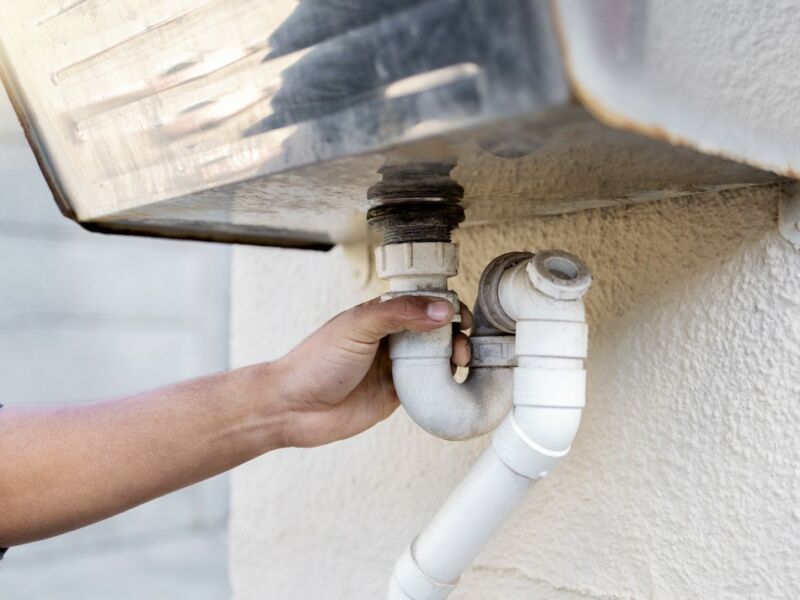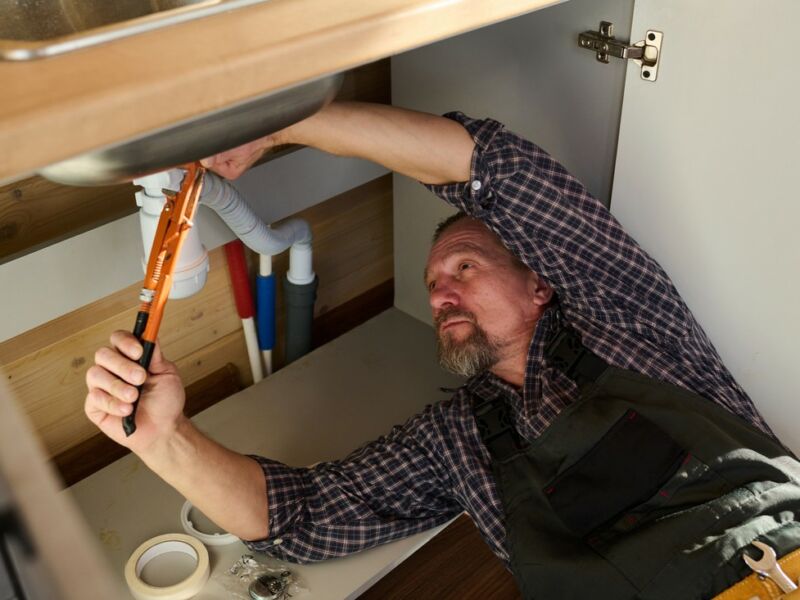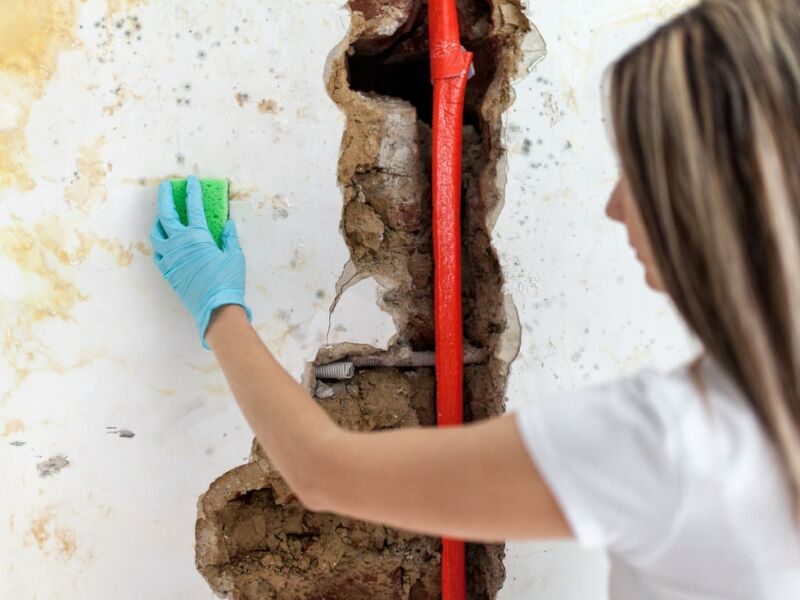
Introduction
Burst pipes can cause extensive water damage to your home or property if not fixed promptly. It is essential to know how to handle this situation professionally to minimize the impact and prevent further damage. This article provides comprehensive tips and guidelines for fixing burst pipes, ensuring effective repairs and preventing future issues.
Understanding Burst Pipes

Before delving into the repair process, it is crucial to understand what burst pipes are and why they occur. Burst pipes refer to cracks or splits in water pipes that result in water leakage. They can happen due to various reasons, such as freezing temperatures, age, corrosion, high water pressure, or physical damage.
Common Causes of Burst Pipes:
- Freezing temperatures
- Aging pipes
- Corrosion
- High water pressure
- Physical damage
Signs of Burst Pipes
Identifying burst pipes early is crucial to prevent significant water damage. Look out for the following signs:

- Water leaks or dripping from walls, ceilings, or floors
- Decreased water pressure
- Unusually high water bills
- Discolored or foul-smelling water
- Noisy or rattling pipes
Immediate Steps to Take
When you discover a burst pipe, it is important to act quickly to minimize water damage:
- Turn off the water supply: Locate your main water shut-off valve and turn it off to stop water flow to the affected pipe.
- Turn off electricity: In case the burst pipe is near electrical outlets or appliances, turn off the electricity at your main breaker box to avoid electrical hazards.
- Remove valuables from the affected area: Move any valuable items or furniture away from the water to prevent further damage.
- Call a professional plumber: Contact a reliable and experienced plumber to assess and repair the burst pipe.
- Notify your insurance company: Inform your insurance provider about the burst pipe to initiate the claims process if necessary.
Professional Burst Pipe Repair
Repairing burst pipes requires professional expertise. Here are some essential tips to ensure effective repair:
1. Hire a Licensed Plumber:
Always work with a licensed and reputable plumber who specializes in pipe repairs. They have the necessary skills, knowledge, and equipment to fix burst pipes correctly.
2. Assess the damage:
The plumber will carefully evaluate the extent of the damage to determine the most suitable repair approach. This may include replacing the damaged section of the pipe or installing new pipes.
3. Use high-quality materials:
It is important to use high-quality pipes, fittings, and connectors during the repair process to ensure durability and prevent future burst pipe incidents.
4. Follow proper repair techniques:
The plumber will employ professional repair techniques, such as soldering, sealing, or clamping, depending on the type and location of the burst pipe. They will ensure a secure and watertight connection.
5. Test the repaired pipe:
After completing the repairs, the plumber will perform water pressure tests and inspections to ensure that the pipe is functioning correctly and there are no additional leaks.
6. Insulate exposed pipes:
To prevent future burst pipe incidents, consider insulating exposed pipes, especially in areas with freezing temperatures. Insulation helps protect pipes from freezing and cracking.
Preventing Burst Pipes
Prevention is key to avoiding burst pipes and the resulting water damage. Here are some preventive measures:
1. Insulate exposed pipes:
Insulate pipes in areas prone to freezing temperatures, such as attics, basements, and crawl spaces. Use pipe insulation sleeves or wraps to add an extra layer of protection.
2. Maintain adequate heating:
Ensure that your home or property is adequately heated, especially during cold weather, to prevent pipe freezing. Monitor the temperature in areas vulnerable to freezing pipes.
3. Drip faucets in freezing conditions:
In extremely cold weather, let faucets connected to vulnerable pipes drip at a slow pace. The water movement helps prevent freezing and relieves pressure in the pipes.
4. Avoid excessive water pressure:
Excessive water pressure can strain pipes, leading to bursts. Consider installing a pressure regulator or water pressure gauge to monitor and control water pressure levels.
Frequently Asked Questions (FAQ)
What should I do when I find a broken or burst pipe?
- Turn off the water supply.
- Turn off the electricity.
- Remove valuables from the affected area.
- Call a professional plumber.
- Notify your insurance company.
How can I prevent burst pipes?
- Insulate exposed pipes.
- Maintain adequate heating.
- Drip faucets in freezing conditions.
- Avoid excessive water pressure.
Important Facts and Statistics
- Recently, a water main repair in Brooklyn had to be carried out on an emergency basis due to lead pipes [source].
- Burst pipes can lead to significant water damage and increased water bills [source].
- Clogged drains and pipes can cause major problems, especially for businesses relying on proper plumbing function [source].
- Major environmental stressors, like earthquakes, are common causes of severe pipe damage [source].
Conclusion
Fixing burst pipes requires professional attention and prompt action. By hiring a licensed plumber, following proper repair techniques, and implementing preventive measures, you can effectively address burst pipes and minimize potential water damage. Remember to act quickly and notify your insurance company to ensure a smooth resolution. Taking these steps will help protect your property and prevent costly repairs in the future.



